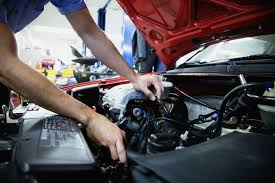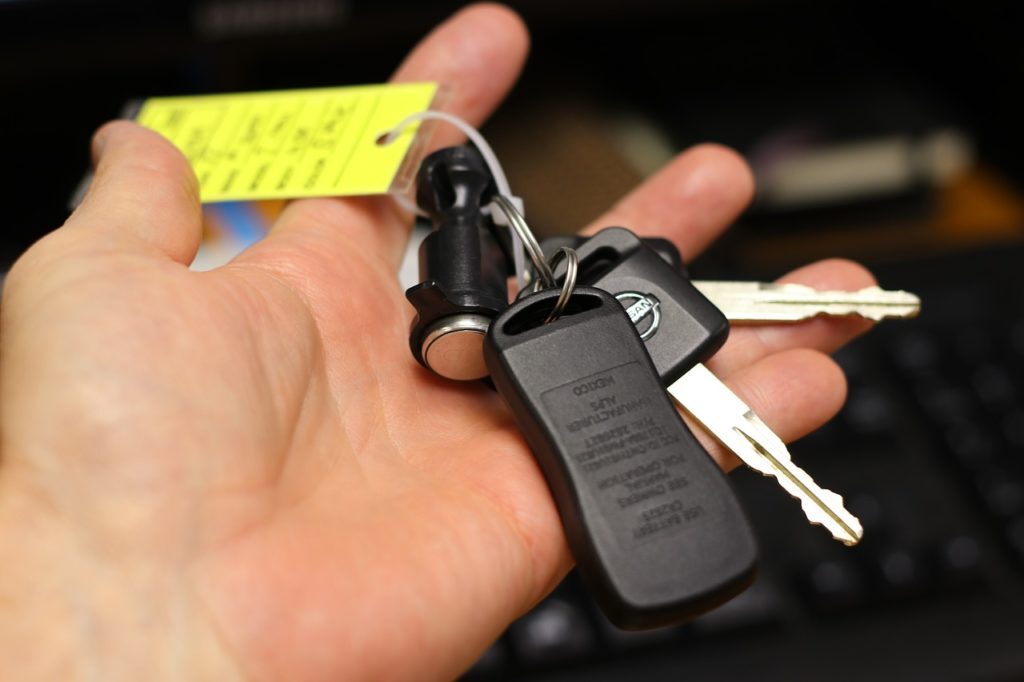If your mechanic tells you any of these things, it’s time to shop around for a new mechanic
Nearly everyone has gone to the local shop for routine auto maintenance only to drive away after paying a lot more in unexpected charges. Most mechanics are honest, hardworking people who only want to help you by pointing out problems you may not know about. But some mechanics want to take you and your wallet for a ride. If any of these things sound like your mechanic, start looking for a new one.
“You can use any kind of motor oil.”
Some mechanics will tell you that your car can use any kind of oil, especially if it will save you money. There is only a little bit of truth to this. Let’s take a very common oil, 5w-30, as an example. The first number is the viscosity, or the ability of the oil to flow, at 0°F. The second number is the viscosity at 212°F, which is the normal operating temperature of most vehicles.
Some vehicles in extremely cold climates use a thinner oil, such as 0w-30, in order to start easier in the extreme cold. Notice the second number, the viscosity at normal operating temperate, is the same as our previous example. Many vehicles can run on this thinner oil in order to get better efficiency in the minutes after starting. But that second number, the ‘hot’ number, isn’t one to mess with. Using a thicker or thinner oil than recommended for normal operating temperatures can result in damage to your vehicle. So in this case, all oil isn’t the same.
The same goes for conventional versus synthetic oil, each of which has different properties and a number of pros and cons. Synthetic oil is more expensive, but can also be better for your vehicle. Some turbocharged and high-performance vehicles even require synthetic oil in order to perform properly.
“I wouldn’t drive that very far.”
This is a scare tactic designed to get you to authorize a repair. Mechanics know that most people don’t know anything about their cars, so they prey on your fears that you’ll not want to break down on the side of the road. If a mechanic is trying to coerce you in this way, get a second opinion immediately.
“We should replace the entire thing.”
Sometimes you need to replace the entire exhaust system when something is wrong. But other times, a simple repair will cover it. If you fail an emissions test because of a hole in your exhaust, you should be going the other direction if you hear words like “entire,” “whole,” or “system.” In some cases, a simple problem like this can be fixed with a much cheaper weld or even a quick dab of a sealant. Some shops will even make this type of repair at no charge to you if all that is required is a dab of sealant.
“You need to fix this now before it becomes a problem.”
Some greedy mechanics will exaggerate how serious a problem is in order to get you to make a repair, even if it doesn’t really have to be fixed right away. You may have a power steering pump, for example, that has started making a minor amount of noise and will need to be replaced down the road. A shady mechanic, while being honest that complete failure can contaminate the entire system, may exaggerate how long you have before a replacement is necessary. That failing pump, while needing to be replaced, might last for a long time before it fails, meaning you can take a few days to shop around.
Unfortunately, some honest mechanics will exaggerate a legitimate problem in order to convince a skeptical owner that the problem really does exist. Even worse, a shady mechanic may point out a problem that doesn’t exist! When in doubt, get a second opinion!

Lies Your Mechanic Has Told You
Car mechanics are notorious for lying to their customers in order to gain extra work for things that don’t really need doing.
In the Shop
Car owners place a lot of trust in mechanics to limit maintenance and repairs to what a vehicle needs. But when there’s a sizable knowledge gap between vehicle owner and mechanic, that trust can be betrayed. That’s why there are some things a car owner should know before heading into the shop for even a routine oil change that will help look out for fibs auto shops tell to get you to spend a bit more.
Put Nitrogen in Your Tires
Nitrogen is supposed to help tires stay properly inflated through dramatic changes in weather. Consumer Reports says that’s not a factor with most modern tires, and it’s easy to reinflate tires yourself, saving about $5 per tire by using regular air instead of nitrogen.
Use Only Dealer Parts
Buying aftermarket parts for repairs is a nightmare, even for folks who know cars. In rebuilding or repairing older cars, be very careful about going with lower-grade parts just to shave off some costs. Read reviews, check multiple sources, and, if still unsure, go with the midgrade or premium part instead. And never go cheap on brakes. But none of that means using only dealer parts.

Mechanics Lie: Need To Follow A Set Service Schedule
We will start off with one of the most obvious lies that car mechanics can tell. The idea that you must follow a set service schedule is a lie that mechanics tell for an obvious reason, the reason being money. If a mechanic gets someone trapped into the idea that they need to come into the shop on a regular basis, they know they will be getting money each and every time, even if there isn’t much actual work that needs to be done.
Mechanics Lie: You’ve Done Too Many Miles
To some degree, this is actually true because, obviously, the more miles that a car covers, the more likely it is to break down simply because it is being worked hard—and this can lead to general wear and tear. However, if your mechanic is claiming that you need work done because you’ve hit 20,000 miles, then you can tell that they might be trying to simply get some extra cash out of you because most vehicles will still be running smoothly at that point.

Winterize Or Summerize Your Car
Another way a car mechanic can lie to you is claiming that you need to winterize or summerize your car, which would mean that work needs to be done twice a year due to the seasons. It’s a clever way to guarantee a mechanic earns some extra cash. One big way mechanics can earn more money from you is stating that you need car tire covers during the winter in case it snows heavily.
Whilst some people might need that depending on the weather where they live, many will not. Another situation is that modern coolant and antifreeze should last for the majority of a car’s life and if that doesn’t, then enhancing it with intervals measuring every 50,000 miles will be a quick way to add up the spending.
You Can’t See The Work We Did
If you ever need a perfect example of how a car mechanic is lying to you, it is the phrase, “You can’t see the work we did.” If you are ever told that by a mechanic, then you need to immediately question them for more details. Whilst some work might be taking place that can’t be visible, it is important to push them for strict details about exactly what has happened to make sure that they aren’t lying and simply claiming to have done some work when they really haven’t.
Sometimes, mechanics can claim they have done extra work that you can’t see, hoping that most people won’t question them for further information or details, with mechanics using terminology that might deter a regular customer from asking further questions.
Prepaid Maintenance Is The Best Option
Once again, this isn’t exactly a full-blown lie because prepaid maintenance certainly does have its benefits and is incredibly convenient. However, this is a situation where certain promises can be overexaggerated and aren’t something that is fully necessary. Having prepaid maintenance is convenient for you but it benefits the dealership and its service department even more because they make money by scheduling more services than the car needs.
Small, little details will then become big issues as most of these plans do not cover wear and tear issues like brakes and wipers, meaning there are then extra charges added to the prepayment, and the cost of the situation quickly adds up.
The Brakes Are Bad
Speaking of issues, this is another area where mechanics are really able to make the most out of their knowledge and bring in the fear factor that works on many customers. After all, out of every element on your car, the brakes are the last thing that you want to possibly be faulty or broken, as they can be a matter of safety and therefore, whenever anyone is told any information about their brakes, they immediately panic and want the situation resolved.
However, a mechanic will often encourage the customer to replace everything when, in reality, simply cleaning the brake rotors can fix the issue. But because people are worried, they instantly pay for way more than they need to.

